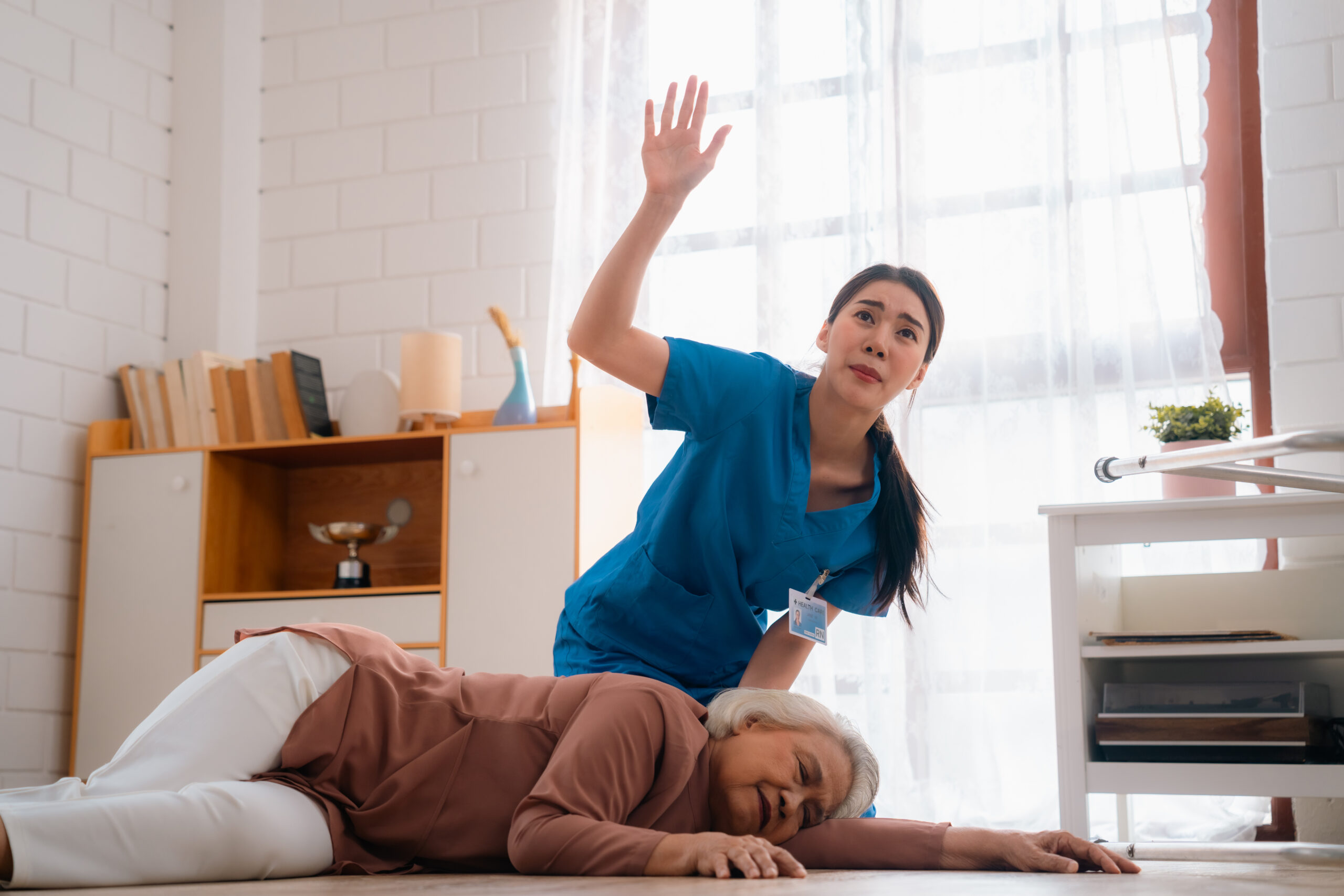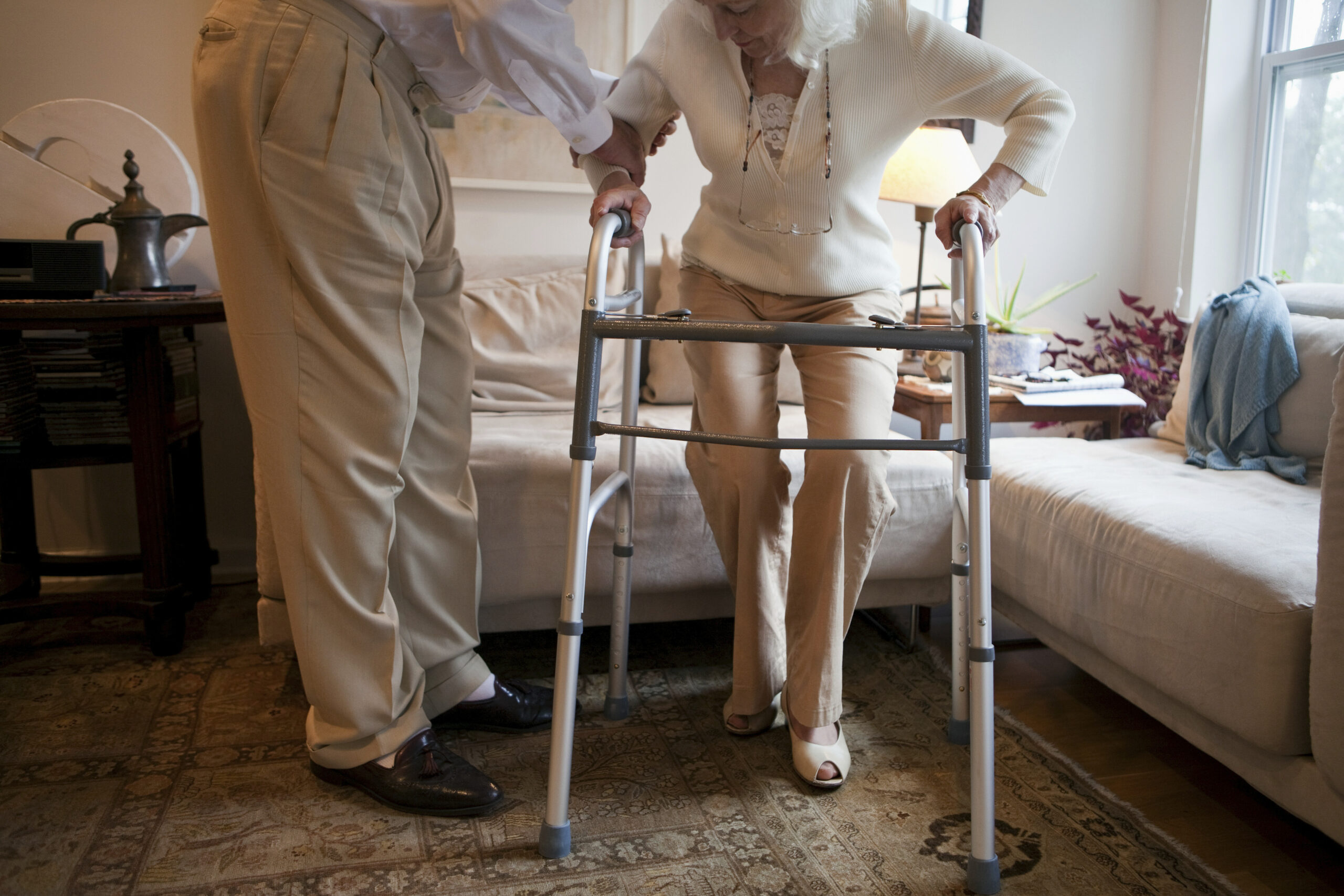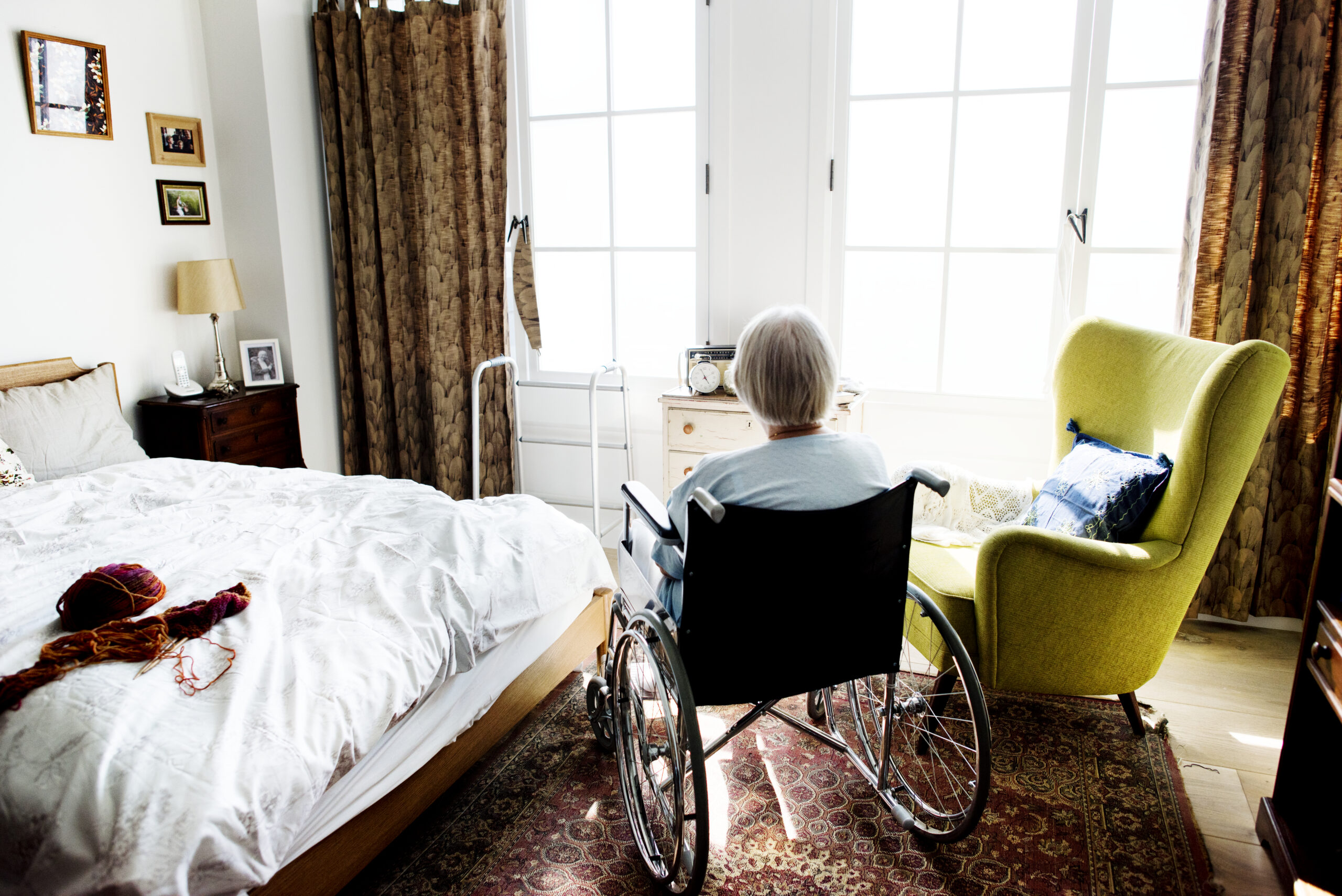The Alarming Truth About Falls in Nursing Homes
Imagine this: a loved one is living in a nursing home, a place designed to ensure their safety and comfort, only for them to suffer a fall—an incident that could drastically change their quality of life. According to the CDC, nearly 50% of nursing home residents experience a fall each year. These falls can result in a range of outcomes, from broken bones and traumatic injuries to a loss of independence and emotional distress. For many families, alarms in nursing homes are seen as a simple and effective solution to prevent such accidents. But are these alarms really as helpful as they seem, or do they bring unintended consequences that could cause more harm than good?
In this blog, we’ll take a deeper dive into the truth behind alarms in nursing homes. We’ll explore the legal landscape, the effectiveness of alarms, and the psychological and emotional impacts they can have on residents. We’ll also examine both the pros and cons of alarm use, providing you with the knowledge to make the best decisions for your loved one’s care.
Are Alarms in Nursing Homes Legal?
One of the most common misconceptions surrounding alarms in nursing homes is the belief that they are outright banned or restricted. In fact, alarms are not illegal, and their use is permitted by federal regulations. However, many nursing homes have chosen to adopt an “alarm-free” approach in recent years, opting for alternative fall prevention strategies. Why? The answer lies in the balance that these facilities must strike between safety and individual autonomy.

Regulations by the Centers for Medicare & Medicaid Services (CMS) require nursing homes to respect each resident’s dignity and freedom. This means that any alarm system used must be carefully considered and tailored to the individual’s needs. Nursing homes are tasked with finding the right solutions that prioritize safety without infringing on residents’ rights to move freely. Because of this, alarms are used sparingly, and when they are implemented, they must be done so thoughtfully and with caution.
The Pros and Cons of Using Alarms in Nursing Homes
As with many safety measures, the use of alarms in nursing homes comes with both advantages and disadvantages. While alarms can be an effective tool to alert staff of a resident’s unassisted movement, they can also have unintended negative consequences. Let’s break down the pros and cons of using alarms in nursing homes:
Pros of Using Alarms
- Quick Response Times: Alarms provide immediate alerts to nursing staff when a resident attempts to get out of bed or move without assistance. This allows caregivers to intervene quickly, potentially preventing falls or injuries before they occur.
- Customizable Options: Modern alarm systems have become more sophisticated and can be tailored to meet individual needs. For example, some alarms can be programmed to emit a familiar voice or soothing sounds instead of a harsh, startling beep. This can help ease the anxiety of residents who are sensitive to loud noises.
- Added Layer of Safety: For high-risk residents, such as those with mobility impairments or cognitive challenges, alarms can offer an extra layer of oversight. This can be particularly important for residents who are at high risk for falls but may not be able to communicate their needs effectively.
Cons of Using Alarms
- Startling Effects: One of the most significant drawbacks of alarms is their potential to startle residents. A loud, sudden alarm can cause confusion, anxiety, and fear, particularly among those with cognitive impairments like dementia. In some cases, the alarm’s noise could even cause residents to become disoriented or agitated, increasing their risk of a fall.
- Restricted Movement: For some residents, knowing that an alarm will go off if they move could cause them to hesitate or avoid getting out of bed altogether. This can lead to a decrease in physical activity, which is essential for maintaining mobility and independence. It can also result in residents feeling “trapped” or unable to move freely, which can be psychologically distressing.
- Caregiver Dependency: There is a risk that overreliance on alarms could lead to nursing staff becoming less attentive to residents’ needs. If staff members know that alarms will notify them of any movement, they might not monitor residents as closely, assuming that the alarms will take care of alerting them when assistance is needed. This could lead to lapses in care or less personalized attention.
Is Alarm Use Effective in Preventing Falls?
The effectiveness of alarms in preventing falls has been a topic of much debate in the elder care community. While some proponents of alarm use argue that they provide essential warnings, giving staff time to intervene, research on the topic has yielded mixed results.

- Proponents of Alarm Use: Supporters contend that alarms are invaluable tools for preventing falls, especially in high-risk residents. The logic is simple: if a staff member is notified immediately when a resident attempts to get out of bed or move on their own, they can respond quickly and prevent an accident from occurring.
- Critics of Alarm Use: On the other hand, some experts argue that alarms can do more harm than good. For instance, a study published in the Annals of Long-Term Care found that alarm use did not significantly reduce fall rates in nursing homes. Instead, the study suggested that comprehensive fall prevention programs—such as staff training, mobility assistance, and individualized care plans—proved to be more effective in reducing falls than relying solely on alarms.
Position Change Alarms: Safety Tool or Psychological Restraint?
Position change alarms, which notify staff when a resident shifts positions in bed, are particularly controversial. These alarms are intended to alert caregivers when a resident attempts to move or get out of bed without assistance. While these alarms can be beneficial in certain situations, they also raise serious concerns.

- Startling Sounds: Like other types of alarms, position change alarms can be startling and frightening for residents. This is especially true for those with cognitive impairments such as Alzheimer’s disease or dementia, who may not understand the purpose of the alarm. The loud noise could cause panic, leading to further disorientation and increasing the likelihood of a fall.
- Freedom vs. Safety: Another significant concern is that position change alarms may inadvertently act as a form of restraint. By alerting staff every time a resident shifts positions, these alarms may discourage residents from moving freely. The fear of triggering an alarm could make them less likely to reposition themselves, which is essential for their physical health and comfort. CMS has raised concerns about this issue, suggesting that alarm use may lead to a restriction of movement and a loss of autonomy for residents.
When Should You Advocate for an Alarm?
If you believe that an alarm is necessary for your loved one’s safety, it’s important to approach the situation with care and thoughtfulness. Here’s how you can advocate for the use of alarms while ensuring your loved one’s dignity is preserved:
- Research the Facility’s Policies: Before requesting an alarm, take the time to understand the policies and practices of the nursing home where your loved one resides. Some facilities may have a “no alarms” policy, opting instead for alternative safety measures. Ask about their stance on alarm use and inquire about any alternatives they may offer, such as non-invasive monitoring systems.
- Engage the Care Plan Team: Every resident in a nursing home should have a personalized care plan that takes into account their unique needs and preferences. Engage with the care plan team to discuss your concerns and share your reasoning for requesting an alarm. Be sure to highlight your loved one’s specific medical needs and their risk factors for falls.
- Leverage CMS Guidelines: The CMS guidelines, specifically FTAG 604, acknowledge that alarms can be useful in certain situations. If you believe that an alarm is necessary for your loved one’s safety, reference these guidelines to make your case. Be clear about your loved one’s health needs and how an alarm could help reduce the risk of falls.
Innovative Alarm Solutions: A Modern Approach
As technology continues to advance, new alarm solutions are being developed to address many of the concerns associated with traditional alarm systems. These innovations aim to provide enhanced safety without compromising residents’ comfort or freedom.
- Silent Alarms: One of the most promising developments in alarm technology is the introduction of silent alarms. These devices notify staff without emitting any sound, reducing the risk of startling or upsetting residents. Silent alarms may use vibrations or visual signals to alert staff, providing a more discreet and less intrusive way to monitor residents.
- Personalized Messages: Some modern alarm systems allow for personalized messages to be played when an alarm is triggered. Instead of a harsh, jarring beep, the alarm could play a gentle, familiar voice reminding the resident to stay in bed or wait for assistance. This can help reduce anxiety and make residents feel more at ease.
- Smart Monitoring: Smart monitoring systems use advanced sensors and AI to track a resident’s movement patterns. These systems can differentiate between a resident’s typical movements and a potential fall risk, reducing false alarms and minimizing unnecessary distress.

The Right Balance for Your Loved One
Deciding whether or not to use alarms in nursing homes is a complex decision that requires careful consideration of your loved one’s unique needs and preferences. While alarms can provide an additional layer of safety, they must be used thoughtfully and in conjunction with other fall prevention strategies. Over-reliance on alarms can limit residents’ freedom and autonomy, so it’s crucial to strike a balance between safety and dignity.
As a family member, your role in advocating for your loved one’s care is crucial. Stay informed, ask questions, and work closely with the care team to develop a personalized plan that works for your loved one. If you or a loved one has been injured in a nursing facility, please call us and speak to an attorney today: 757-547-5555


